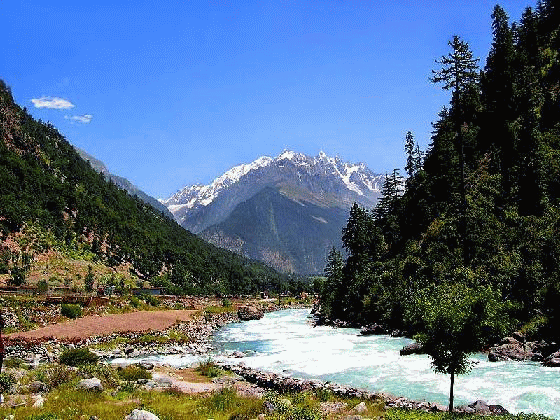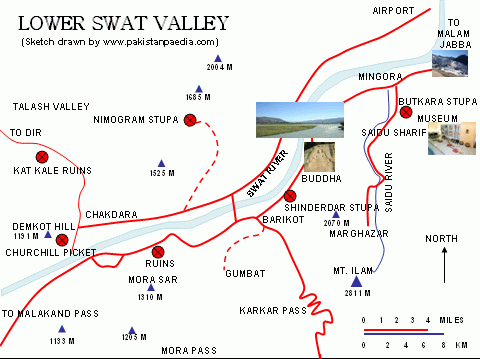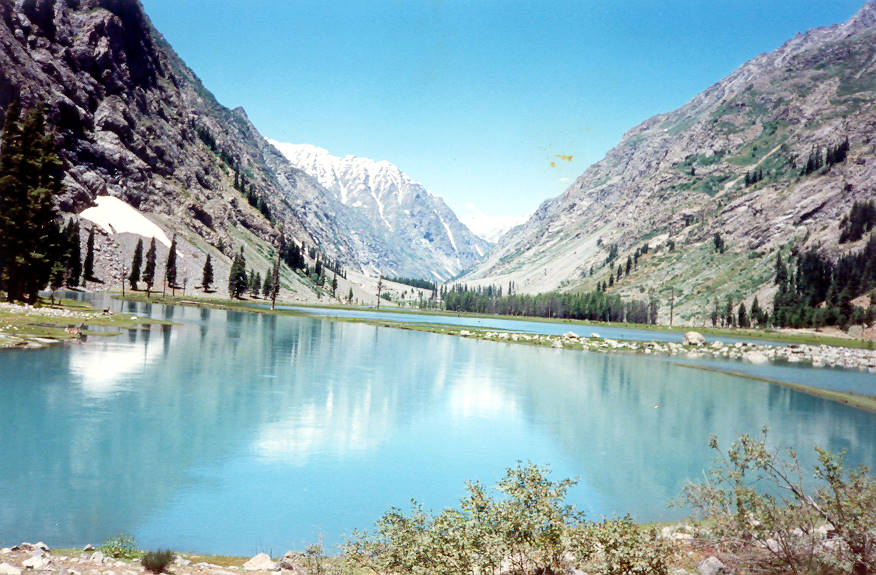The Frontier Post
Editorial:
The prime minister was blowing hot and cold in the National Assembly. But what supremacy of the Parliament was he asking its members to uphold? Haven’t lawmakers been caught red-handed in these very times for fake degrees and they have resigned? Haven’t legislators resigned too for fear of being caught? And aren’t court challenges pending against dozens of parliamentarians for fake degrees? So what was he pleading to uphold? The supremacy of cheating, counterfeiting, fraud and felony? And what feathers has he added to his own hat by campaigning for a proven fraudster in an upcoming by-election? Hasn’t he splattered mud on his face all over with this ignominy? Should he have shunned the cheater? Or had he had to ennoble his abominable inerasable ignobility with his presence? And who says that Parliament here is supreme? Isn’t it itself a big deceit, invented and propagated by our self-conceited and self-assuming politicos? Can it be bigger than the Constitution from which it draws its life and its sustenance, as do the other pillars and institutions of the State? Can a son become his own father’s father and a daughter her own mother’s mother? The conceits of human beings certainly cannot be limitless. But do the conceits of the Pakistani politicos have to be only boundless, as is their hypocrisy always and as is their pretentiousness perennially? But who will tell the prime minister that even if constitutionally supreme, the real supremacy can come to Pparliament only from the respect and veneration that it commands in the public estimation? Does this Parliament command that kind of a prized place of glory in our people’s eyes? You must be kidding. More than two years have passed, and not even a single enactment has it legislated for the amelioration of the people’s multiplying hardships. Throughout, it has stayed engrossed undistracted in the elitist causes of the elitist classes hungering unquenchably for power and bickering meanly over the spoils of power. The commoners and the causes of commoners have throughout received just a short shrift from it, reducing into a sheer redundancy and an absolute irrelevancy to the life of the surging rung of the common citizenry. And with their own disinterest, the parliamentarians have made of it a mere superfluity that could be done away with, with no harm coming to the health of the State and with no tear welling up in the eye of the citizenry by and large. For the most part, they keep themselves absent from it, leaving it mired in an intermittent quorum problem. And whenever they turn up, they keep trooping down to the seats of the ministers with piles of applications pertaining to pursuits for their personal advancement and personal enrichment. The proceedings of the Parliament hardly interest them. And whenever and whoever speaks, it is all about politics, no economics, no people’s issues, no public problems, all of which, at best, get just some passing allusions or remarks without ever getting from them some in-depth analysis or exhaustive thought or possible solutions. Indeed, essentially there is hardly a difference between the act of the fascist praetorian generals and of the bloodsucking feudal barons and moneyed upstarts thronging this Parliament and the corridors of executive power. Both are one and the same. Both are the chips of the same block. Only they differ in dress. The praetorians keep the people subdued and emasculated under the tough heels of their heavy boots. The political lords, though they do all their politics in the name of the people, but the people they keep enslaved in their serfdom while thriving all the time on their toils and sweat on the farms and in the factories. And they too treat the commoners even worse than their pet dogs like stray dogs. And yet the cliché-savvy, populist-jargon-loving and patently-self-righteous commentariat would have it believed that the parliamentarians are what they are as the politicians had had not the chance to show their mettle, as if there have been no unobstructed civilian rules ever and as if even these two years or so were on a lease to the political leadership. But then hypocrisy is not the sole monopoly of the political elite as is not pretentiousness and chicanery. It cut across our elitist segments of polity. And it is no surprise if media channels always keep hosting our political elites who then pose as people of unquestionable probity and imbued with wells of love and affection for the common people, particularly the downtrodden, deprived and denied. But they stink, their act stinks, their talk stinks, and the gathering stench has now become just unendurable. The people must now stand up and declare they would have this stench no more. And in the Parliament, they would have no cheater, no fraudster, no counterfeiter, no matter whoever he or she may be. That’s that.
M WAQAR..... "A man's ethical behavior should be based effectually on sympathy, education, and social ties; no religious basis is necessary.Man would indeed be in a poor way if he had to be restrained by fear of punishment and hope of reward after death." --Albert Einstein !!! NEWS,ARTICLES,EDITORIALS,MUSIC... Ze chi pe mayeen yum da agha pukhtunistan de.....(Liberal,Progressive,Secular World.)''Secularism is not against religion; it is the message of humanity.'' تل ده وی پثتونستآن
Saturday, May 15, 2010
Pakistan has a role in reconciliation process: Karzai
Afghanistan will also involve Pakistan when it seeks reconciliation with the Taliban leaders, says Afghan President Hamid Karzai.
In a joint appearance with US Secretary of State Hillary Clinton, Mr Karzai also drew a distinction between the processes of reintegration and reconciliation, noting that while one involves Taliban foot soldiers, the other would require the involvement of the Taliban leadership.“Reconciliation is an entirely different issue that’s with the leadership mostly beyond our reach and mostly in our neighbours in Pakistan, where we’ll have Pakistan also involved and a lot of regional questions involved there,” said Mr Karzai.Diplomatic observers in Washington see Mr Karzai’s willingness to involve Pakistan as a major concession from a leader who until recently was opposed to giving it any role in this process.They noted that the offer to involve Pakistan followed three days of intense negotiations between the US and Afghan experts who accompanied Mr Karzai to Washington to participate in the summit-level talks.Mr Karzai’s offer to involve Pakistan in the reconciliatory process was even more significant because it was made in the presence of Secretary Clinton. The two appeared at the US Institute of Peace on Thursday afternoon for a discussion on Afghan-US relations in the context of Mr Karzai’s four-day visit to Washington.Secretary Clinton availed this opportunity to clarify an earlier statement in which she warned Islamabad of “very severe consequences” if a successful attempt on the US soil was traced back to Pakistan.She recalled that in the same interview she also had stressed the importance of a strategic relationship between the two countries.
“I started by talking about the importance of the strategic relationship we are developing with Pakistan, the fact that we have expanded our interactions far beyond the counter-terrorism agenda,” she said.
The United States, however, was also concerned about the recent attack and other efforts that “thankfully have not been successful, just as you heard President Karzai say that he was concerned”, she added.
“And we’ve been encouraged by the way that the Pakistani government and military has, in this past year, been much more willing to go after the terrorists who are not only threatening outsiders but threatening them: the military actions, you know, in Swat and Waziristan.”
But Secretary Clinton also stressed the need to do more, adding that she feared the consequences of another terrorist attack because she valued America’s relationship with Pakistan.
In a joint appearance with US Secretary of State Hillary Clinton, Mr Karzai also drew a distinction between the processes of reintegration and reconciliation, noting that while one involves Taliban foot soldiers, the other would require the involvement of the Taliban leadership.“Reconciliation is an entirely different issue that’s with the leadership mostly beyond our reach and mostly in our neighbours in Pakistan, where we’ll have Pakistan also involved and a lot of regional questions involved there,” said Mr Karzai.Diplomatic observers in Washington see Mr Karzai’s willingness to involve Pakistan as a major concession from a leader who until recently was opposed to giving it any role in this process.They noted that the offer to involve Pakistan followed three days of intense negotiations between the US and Afghan experts who accompanied Mr Karzai to Washington to participate in the summit-level talks.Mr Karzai’s offer to involve Pakistan in the reconciliatory process was even more significant because it was made in the presence of Secretary Clinton. The two appeared at the US Institute of Peace on Thursday afternoon for a discussion on Afghan-US relations in the context of Mr Karzai’s four-day visit to Washington.Secretary Clinton availed this opportunity to clarify an earlier statement in which she warned Islamabad of “very severe consequences” if a successful attempt on the US soil was traced back to Pakistan.She recalled that in the same interview she also had stressed the importance of a strategic relationship between the two countries.
“I started by talking about the importance of the strategic relationship we are developing with Pakistan, the fact that we have expanded our interactions far beyond the counter-terrorism agenda,” she said.
The United States, however, was also concerned about the recent attack and other efforts that “thankfully have not been successful, just as you heard President Karzai say that he was concerned”, she added.
“And we’ve been encouraged by the way that the Pakistani government and military has, in this past year, been much more willing to go after the terrorists who are not only threatening outsiders but threatening them: the military actions, you know, in Swat and Waziristan.”
But Secretary Clinton also stressed the need to do more, adding that she feared the consequences of another terrorist attack because she valued America’s relationship with Pakistan.
Swat Valley in Summer




The News
By Zubair Torwali
It's been a year since the military successfully completed Operation Rah-e-Haq against the Taliban militants in Swat. Peace prevails in the Valley but many expectations of the people have still to be fulfilled. For instance, the government had given the assurance, much to the joy of the locals, that the Valley would be open for tourists by summer. But this never happened.
Before the Taliban insurgency, students from universities and colleges from across the country would troop to Swat in April. They would come here and camp here, thronging tourist resorts like Bahrain, Kalam, Malam Jabba, Miandam, Madyan and Marghzar. May used to be the month for academia, with academics visiting the Valley to study the remains of the Buddhist civilisations, as well as enjoying the natural beauty of Swat. In June and July, families would rent houses and stay in Bahrain, Madyan and Kalam, enjoying summer vacation with their children. And the month of August used to be peak time for tourists, with people from all over the world visiting the Valley.
I prefer Swat over every other part of the country, and not merely because I am a proud resident of the Valley. I remember the serenity that once prevailed here. And I am sure everyone who has been to Swat in its golden days will agree with me. Who can forget a drive through orchards of apples, peaches and apricots, and a ride along the bank of the Swat River? But Swat has been afflicted with such scars that it will take decades to recover.
Last week, I visited Malam Jabba, Marghzar, Madyan, Kalam, Miandam and other valleys. It was all quiet, and there was no shelling, no crossfire. I felt a gloom surrounding the beautiful valleys. Not only the vales pensive, but even the snow-covered mountains looked sad. As if, like the residents, they wanted to ask some painful questions which might never be answered. Yes, the people of Swat have a number of questions to ask, but they dare not put them to the powers that be.
You can capture people. You can exhort them to kill, just as you can kill people yourself. But you can never stop people's thoughts. Who can stop the citizens of the Valley from demanding who is going to guarantee a lasting peace in Swat, and when? The military? The civil government? Or both? Who will put an end to the targeted killings of peacekeepers? First, who exactly is behind these killings? What will be the fate of the arrested militants? What about the foreign aid received in the name of Swat? And, more importantly, will someone make the effort to restore Swat to being the lovely place it was?
They are not contrived questions, because they are on the lips of everyone in Swat. By people from all walks of life--from drivers to intellectuals. There are, of course, individuals in the country who know the answers to these questions. Will they ever bother to answer them, as they must?
It seems that the media, which used to be on the forefront on the war against the militants, has forgotten the Valley after the completion of the operation. Or perhaps it has other, more pressing matters to attend to, like politics. Thumbs up to the vibrant and free media of Pakistan!
But, dear Reader, these questions are not directed at you. Swat is still a place worth visiting. So the next time you plan a vacation, give Swat a chance to gladden your heart.
The writer is a freelance contributor who heads IBT, an independent organisation dealing with education and development in Swat.(Email: ztorwali@gmail.com)
Gunmen 'kidnap over a dozen travellers in Pakistan'

Gunmen Saturday kidnapped over a dozen people in northwest Pakistan, a region beset by militant and sectarian violence, a senior government official said.The hostages were travelling from Peshawar city to Parachinar, the main town in the tribal region of Kurram, when their vehicle was intercepted by around 40 armed militants, local administration chief Khalid Omarzai, said.He said "13 people including two employees from the state-run power supply company have been abducted."Abdul Rashid, a police official in the nearby town of Hangu, said he had received information that "the number of hostages was 50 plus.""They stopped their vehicles and whisked away the passengers," Rashid said.Omarzai said the incident took place as authorities were trying to hammer out a peace accord between Sunni and Shiite communities in the area.
"It is an attempt to sabotage the peace efforts," he said.
The area is a sectarian flashpoint, where Sunni and Shiite militants have clashed in the past. They have also kidnapped rival sect members for payment of ransom and have sometimes killed the hostages.
Local MP Mufti Janan told AFP the kidnappers appeared to be from Kurram, where Pakistani Taliban militants are active.
"They have contacted me to convey that some travellers were in their custody," he said, without saying how many hostages were being held.
"I am in touch with them and hope they will be released shortly," he added.
Shiites account for about 20 percent of Pakistan's Sunni-dominated population. The two communities usually coexist peacefully, but more than 4,000 people have died in outbreaks of sectarian violence since the late 1980s.
UK, Germany eye possible ash travel disruptions

Volcanic ash from Iceland could disrupt air travel in both Britain and Germany in the next few days, officials said Saturday.
The British Department of Transport said there was a risk that parts of British airspace could be closed beginning Sunday and those problems could continue through Tuesday. The predictions are based on the continuing eruption of Iceland's Eyjafjallajokul volcano and current wind and weather conditions.
German air traffic control spokesman Axel Raab told The Associated Press that German air travel could see possible disruptions starting Monday. He cautioned, however, that indicators were still "very, very vague."Germany will send up a test flight Sunday to measure the ash concentration, German Aerospace Center spokesman Andreas Schuetz said. Any decision on air space closures will be made after that flight and Sunday's weather forecasts, said Raab.A spokeswoman for Lufthansa, Germany's biggest airline, Stefanie Stotz, welcomed the test flight and stressed that the situation so far didn't seem dramatic.The Met Office, Britain's weather forecaster, said Saturday the wind is expected to change direction Tuesday, which would lower the risks of travel disruptions.Transport secretary Philip Hammond said five-day forecasts are now being published to give airlines and travelers "the best possible information. However, he said the situation "remains fluid and these forecasts are always liable to change."
Subscribe to:
Comments (Atom)